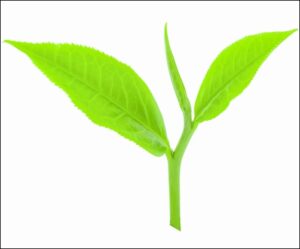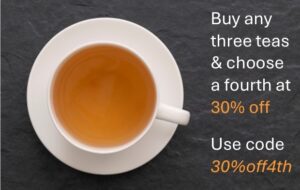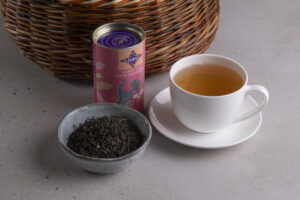Orange Pekoe tea defined

Orange Pekoe tea is a grade of black tea and is a term commonly used in the sale of traditionally made Ceylon, Indian and Kenyan orthodox teas. The term is not used for China teas with the exception of some black teas from Yunnan Province.
The term Orange does not refer to anything related to the fruit but possibly is in honour of the Dutch House of Orange to whom the Dutch East India Company (VOC) brought teas in the 17th Century. Pekoe is derived from ‘bai hao’ (white down), a Chinese term referring the hairs present on the much sought-after, youngest leaves picked from the tea bush.
Some people erroneously consider orange pekoe as a type of tea and this misconception normally arises is consideration of Ceylon teas. Orange pekoe (OP) refers to whole leaf teas which are not broken. Teabags contain even finer broken leaf grades such as fannings. They do not therefore contain Orange Pekoe grade teas, despite some well-known and prestigious brands promoting them!
More elegant tasting, higher grade, tippy, (and more expensive) teas are designated acronyms based upon OP such as Flowery Orange Pekoe (FOP), rising to Golden Flowery Orange Pekoe (GFOP). More elegant teas containing tips and typically picked as ‘two leaves and a bud’ are designated Tippy Golden Flowery Orange Pekoe (TGFOP), Finest Tippy Golden Flowery Orange Pekoe (FTGFOP) or even Special Finest Tippy Golden Flowery Orange Pekoe (SFTGFOP) contain a higher proportion of bud and small, young leaves. This blog article explains all tea grades
Benefits of Orange Pekoe Tea
OP teas have the same health benefits as black teas but the difference is in the taste. As they have unbroken leaves they can be infused more slowly allowing the full flavour profile to be imparted without undue emphasis on the tannins which dissolve more quickly. This gives a more balanced, all-round flavour.
Taste of Orange Pekoe Teas
Ceylon Orange Pekoe teas tend to be fragrant and medium-bodied. Assam OP teas will be more full-bodied and malty, as befits the Camellia sinensis assamica variety. Darjeeling teas use the Chinese variety of Camellia sinensis giving a lighter bodied tea irrespective of the picking. Nilgiri teas are medium bodied and floral, akin to Ceylon teas. OP grades of Kenyan and other orthodox East African teas have a tangy richness of flavour.
Caffeine in Orange Pekoe Teas
OP teas have medium levels of caffeine at around 20mg per 100 ml.
Examples of Orange Pekoe Teas we offer
OP grade is the lowest grade we offer. OP1 is the designation for a superior OP grade tea. Our OP1 grade teas include the following Ceylon teas together with a sample review: Ceylon Nuwara Eliya Lovers’ Leap OP1 “perfect, not strong but has a beautiful taste”; Ceylon Nuwara Eliya Court Lodge OP, “A wonderfully light and fragrant tea. “; Ceylon Uva Pettiagalla OP1, “a full, rounded taste, perfect for afternoon tea”; Ceylon Uva Blackwood Organic OP, “Light and refreshing with excellent flavour” and Ceylon Dimbula Edinburgh OP1. Most of our teas are however of a higher grade than these OP1 teas and are too numerous to list here but you are welcome to explore!
Drinking Orange Pekoe teas
When you are ready to discover some more teas, especially those high-quality orthodox teas from Sri Lanka, India or East Africa, we would recommend these Orange Pekoe whole leaf grades. You will soon appreciate the elegance of flavour and balance of the various flavour components that gives these traditionally-made, tippy teas great character and lasting satisfaction.


